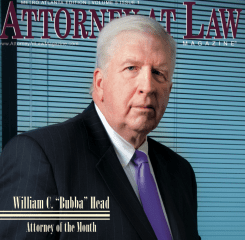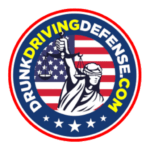DWI-DUI Penalties & OUI-DUI Consequences in the USA
Is DUI a criminal offense? No single, nationwide driving while intoxicated law exists in America, for a single, uniform penalty for DUI. In this article, the author will freely alternate the use the abbreviations, to keep reminding the reader of this anomaly, which only exists in the USA.
Thus, DWI, OWI, or DUI punishments and all other related laws will vary from state to state, if you are convicted of a DUI-related crime, regardless of your State’s impaired driving abbreviation. To read more about how this transpired, go to this link about DUI history in America.
![DUI, drunk driving, driving under the influence, driving impaired and more explained here.]() Drunk Driving or Drugged Driving: What Does DUI Mean?
Drunk Driving or Drugged Driving: What Does DUI Mean?
Understanding the DUI meaning is a good starting point. The reason for the United States not having one, nationwide set of laws is historic because our nation's founders had to bargain for “state’s rights” to be conceded when it came to enacting any new criminal laws by the 13 original states that were not already part of English Common Law.
Drunken driving laws for motor vehicles were only invented in England in the late 1800s. Absent serious bodily injury or a fatality being caused in an “at-fault” crash by an accused intoxicated or drugged driver, a first-offense impaired driving charge will be accused as a misdemeanor crime. Death or serious injury cases can be felonies, even for a first-offense driver.
Yet, the state of Wisconsin calls their first lifetime OWI charge a civil infraction, for those with no prior DUI. Of course, with a subsequent arrest and conviction in the Badger State, harsh 2nd OWI offense penalties are imposed. This boosted punishment scheme must be imposed in order to comply with national directives imposed by NHTSA.
How NHTSA and the Federal D.O.T. have caused Criminal D.W.I. Laws to be Fairly Uniform
This pattern of sharply escalating OVI-DUI punishments for subsequent DUI convictions was put in place by the federal DOT several decades ago. Compliance was assured by each state, through the federal government withholding federal highway funds for any state that does not comply.
Penalties will become stricter with multiple convictions or when aggravating factors are present in your case facts. Judges in some states have varying amounts of discretion in sentencing a 1st DUI (e.g., waiving jail time), with some states enforcing mandatory minimums and others allowing more flexibility, possibly for a low BAC DUI case.
Do Not Attempt Optional Field Sobriety Tests at the Roadway Before Arrest
Many DUI lawyers near me say that refusing testing when pulled over for a DUI is the smart thing to do. Can you refuse a sobriety test offered at the roadway? Yes, you can, and you should say NO to these non-scientific exercises. This is the best plan since this “junk science” could lead to a conviction.
Until arrested for drunken driving, no civil law “implied consent” driver license suspension penalties can be imposed. Post-arrest, however, loss of driving privileges
can occur for refusing a post-arrest refusal to take a State-administered chemical test, to see what’s in your system.
This general advice (to not agree to do the optional, voluntary exercises during the pre-arrest investigation), is your Constitutional right. Since errors by police officers are very common, why risk arrest when you couldn’t and wouldn’t try to do these things if standing in your own home?
For example, many times officers fall short in the instructional phase (or during the administration of) the HGN eye test and sometimes omit the vertical gaze nystagmus up
and down eye check. Even more omissions occur in the instructional and demonstration phases of the walk-a-straight-line test (heel to toe) and the stand-on-one-leg-and-lift-the-other foot balance test and in its grading
Trying and failing gives the law enforcement officer evidence against you that is of questionable validity but is routinely permitted by criminal court judges all over America.
By looking at the possible severe punishments for drunk driving, why risk the officer making a mistake, when refusing to submit is your absolute right to do?
What happens if you refuse a field sobriety test “exercise?” In some states, a person’s refusal to deliver a breath alcohol sample into a hand-held breathalyzer test at the roadway may cost you a small monetary fine. Even if you pay a few dollars, declining to participate in blowing into a breath test device prior to being arrested is what most lawyers (who are skilled in OWI-DUI defense) would advise.
No one is required to submit to any field sobriety test (SFST) requested by a police officer. In the early 1970s, the federal government, through N.H.T.S.A., opted to investigate and study adopting a set of standardized field sobriety tests.
How does the DWI meaning differ from the meaning of DUI charges? A DUI offense is virtually the same as a DWI charge, except for having a different acronym. As explained above, by virtue of the United States being a fairly new country that deferred to “states’ rights” in the late 1700s, drunk driving laws were left to each state to create.
Do the Consequences of D.U.I. Always include DUI License Suspension?
Thus, each state drafts its own wording and names its DUI laws for driving under the influence of alcohol (or drugs) on a state-by-state basis. In the late 1940s, the federal Department of Transportation saw the need to set up “suggested” parameters for the writing of these laws, so that some degree of “consistency” existed between the various states.
As late as 1992, the US government began controlling driver training and set up national rules covering commercial driver rules for any interstate driving being done across state lines, using the Commerce Clause to pass such regulations.
One of the most recent “pushes” by NHTSA (around the year 1999), has been for all states to comply is the inclusion of laws offering reinstatement of driving privileges only if while using an ignition interlock device (IID) for a period of a month or even for several years. By way of example, a 2nd DUI in GA triggers total loss of all driving privileges for 120 days followed by an IID-restricted permit for at least 12 months, and no full license reinstatement for 18 months.
High BAC arrests or accidents resulting in serious harm or death of another person usually merit greater punishment, including jail or prison time. Each state sets out these DUI penalties.
Also, statutes controlling repeat offenses will include longer sentences. Felony DUI causing death or grievous bodily injury can result in many years of potential prison time.
Attending DUI school is also mandated to obtain a driver’s license reinstatement. Most states have laws calling for the convicted person to undergo alcohol or drug addiction assessment and treatment, to perform many community service hours, plus other punishments for that conviction.
A DUI can be costly, with fines, surcharges, and ignition interlock costs possibly costing many thousands of dollars in states like New Jersey. An IID, which will have to be paid for by the driver, may also be required. The IID prevents the car from starting if the driver’s BAC is above a very low threshold limit.
DUI Penalties Get Tougher Every Year
Related Topics: DUI Consequences; Long-Term Financial Impact of a DUI; DUI Lawyer Cost
In most states, a DUI conviction can never be removed from your driving record, so if convicted you must endure DUI consequences for the rest of your life. And the severity of your DUI penalties will hinge on how good of a job your DUI attorney does in attacking all evidence stacked against you, and if your current DUI offense is your first DUI, second DUI, or third DUI or more. Common DUI penalties across the board include:
- Jail time or even a prison sentence – there is a BIG difference
- Driver’s License Loss
- DUI Community Service
- Restitution to others
- MADD VIP Attendance
 DUI Conviction – What Happens Next?
DUI Conviction – What Happens Next?
If you are found guilty of DUI-DWI by a judge or jury, this verdict immediately will set in motion the occurrence of several important dynamics. Other than possible jail time for a DUI, the most serious of these consequences is the loss of your driver’s license. In most states, the loss of a driver’s license is immediate. In a few states, you may be eligible to obtain a work permit or restricted driver’s license of some type.
Once your DUI trial is over, unless sentencing is postponed until a later time by the judge’s order, you are “remanded” or turned over to the custody of the sheriff to serve any jail time called for by your sentence. However, several options may be available to a resourceful DUI attorney at this point that may delay or prevent any immediate jail sentence.
MADD VIP Attendance
Mothers Against Drunk Drivers, or MADD, started the “DUI Victim Impact Panel” program for DUI offenders convicted of misdemeanor driving under the influence of alcohol or other drugs. According to the MADD.org website, “The purpose of the Victim Impact Panel (VIP) program is to help DWI/DUI offenders realize the lasting and long-term effects of substance-impaired driving, to create empathy and understanding of the tragedy, to leave an impression that will change thinking and behavior, and to prevent future offenses from occurring. Panels give victims a healing opportunity to share their stories in a meaningful way. At a VIP, victims and survivors of substance-impaired driving crashes (or others impacted by the crime, such as law enforcement and first responders) speak briefly about the crash in which they were injured and/or in which a loved one was killed or injured, and how it impacts their lives”.
Your judge may order mandatory MADD VIP attendance to start immediately after your DUI conviction.
Call and talk to a top DUI lawyer near me anytime day or night at 1-888-839-4384. Drunk Driving Defense attorneys are handpicked by nationally-renowned DUI attorney William C. Head.

More DUI Penalty Resources
If you’d like to learn more about DUI penalties and consequences, read through some of our comprehensive articles below. We cover all different aspects of DUI penalties and DUI consequences across America. Also, you can call 1-888-839-4384 anytime to schedule a free consultation.
- First DUI Penalties
- Second DUI Penalties
- 3rd DUI Offense
- Multiple DUIs
- DUI Habitual Violator Penalty for Driving
- DUI Driver’s License Suspension
- Ignition Interlock Devices (IIDs)
- Drug and Alcohol Evaluation
- DUI School
- DUI Community Service
- DUI Probation
- DUI Insurance
- DUI Immigration Law
- Child Custody Laws & DUI
- Is DUI Incarceration the Same as Jail Time?
Find The Top-Rated DUI Lawyers Near You
We have listings for the top DUI lawyers in all 50 states and the District of Columbia. Find the best DUI lawyer for you by clicking on your state here.





 Drunk Driving or Drugged Driving: What Does DUI Mean?
Drunk Driving or Drugged Driving: What Does DUI Mean? DUI Conviction – What Happens Next?
DUI Conviction – What Happens Next?